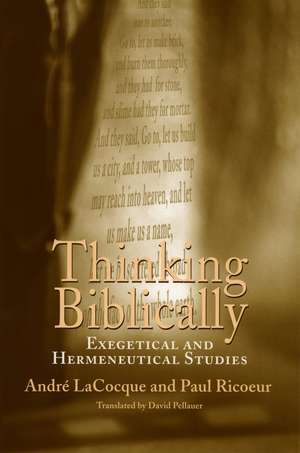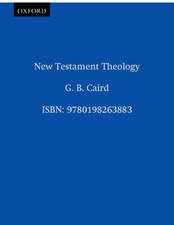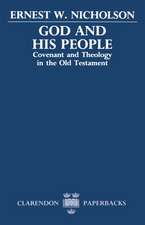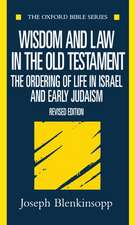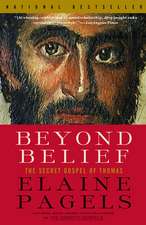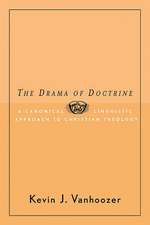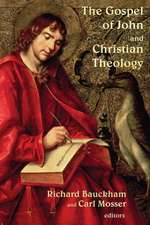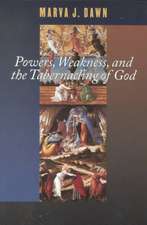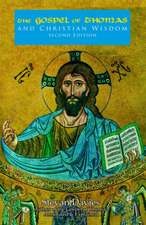Thinking Biblically: Exegetical and Hermeneutical Studies
Autor André LaCocque Traducere de David Pellauer Autor Paul Ricoeuren Limba Engleză Paperback – 5 ian 2004
Unparalled in its poetry, richness, and religious and historical significance, the Hebrew Bible has been the site and center of countless commentaries, perhaps none as unique as Thinking Biblically. This remarkable collaboration sets the words of a distinguished biblical scholar, André LaCocque, and those of a leading philosopher, Paul Ricoeur, in dialogue around six crucial passages from the Old Testament: the story of Adam and Eve; the commandment "thou shalt not kill"; the valley of dry bones passage from Ezekiel; Psalm 22; the Song of Songs; and the naming of God in Exodus 3:14. Commenting on these texts, LaCocque and Ricoeur provide a wealth of new insights into the meaning of the different genres of the Old Testament as these made their way into and were transformed by the New Testament.
LaCocque's commentaries employ a historical-critical method that takes into account archaeological, philological, and historical research. LaCocque includes in his essays historical information about the dynamic tradition of reading scripture, opening his exegesis to developments and enrichments subsequent to the production of the original literary text. Ricoeur also takes into account the relation between the texts and the historical communities that read and interpreted them, but he broadens his scope to include philosophical speculation. His commentaries highlight the metaphorical structure of the passages and how they have served as catalysts for philosophical thinking from the Greeks to the modern age.
This extraordinary literary and historical venture reads the Bible through two different but complementary lenses, revealing the familiar texts as vibrant, philosophically consequential, and unceasingly absorbing.
LaCocque's commentaries employ a historical-critical method that takes into account archaeological, philological, and historical research. LaCocque includes in his essays historical information about the dynamic tradition of reading scripture, opening his exegesis to developments and enrichments subsequent to the production of the original literary text. Ricoeur also takes into account the relation between the texts and the historical communities that read and interpreted them, but he broadens his scope to include philosophical speculation. His commentaries highlight the metaphorical structure of the passages and how they have served as catalysts for philosophical thinking from the Greeks to the modern age.
This extraordinary literary and historical venture reads the Bible through two different but complementary lenses, revealing the familiar texts as vibrant, philosophically consequential, and unceasingly absorbing.
Preț: 262.09 lei
Nou
Puncte Express: 393
Preț estimativ în valută:
50.15€ • 52.47$ • 41.66£
50.15€ • 52.47$ • 41.66£
Carte tipărită la comandă
Livrare economică 03-17 aprilie
Preluare comenzi: 021 569.72.76
Specificații
ISBN-13: 9780226713434
ISBN-10: 0226713431
Pagini: 462
Ilustrații: black & white illustrations
Dimensiuni: 152 x 229 x 30 mm
Greutate: 0.61 kg
Ediția:1
Editura: University of Chicago Press
Colecția University of Chicago Press
ISBN-10: 0226713431
Pagini: 462
Ilustrații: black & white illustrations
Dimensiuni: 152 x 229 x 30 mm
Greutate: 0.61 kg
Ediția:1
Editura: University of Chicago Press
Colecția University of Chicago Press
Notă biografică
Andre LaCocque is a professor emeritus of Old Testament at the Chicago Theological Seminary.
Paul Ricouer is the John Nuveen Professor Emeritus in the Divinity School, the Department of Philosophy, and the Committee on Social Thought at the University of Chicago.
David Pellauer is a professor of philosophy at DePaul University.
Paul Ricouer is the John Nuveen Professor Emeritus in the Divinity School, the Department of Philosophy, and the Committee on Social Thought at the University of Chicago.
David Pellauer is a professor of philosophy at DePaul University.
Cuprins
Preface
Genesis 2-3
Cracks in the Wall
Thinking Creation
Exodus 20:13
Thou Shalt Not Kill
"Thou Shalt Not Kill": A Loving Obedience
Ezekiel 37:1-14
From Death to Life
Sentinel of Imminence
Psalm 22
My God, My God, Why Have You Forsaken Me?
Lamentation as Prayer
The Song of Songs
The Shulamite
The Nuptial Metaphor
Exodus 3:14
The Revelation of Revelations
From Interpretation to Translation
Genesis 44
An Ancestral Narrative: The Joseph Story
Zechariah 12:10
"Et aspicient ad me quem confixerunt"
Index of Passages
Index
Genesis 2-3
Cracks in the Wall
Thinking Creation
Exodus 20:13
Thou Shalt Not Kill
"Thou Shalt Not Kill": A Loving Obedience
Ezekiel 37:1-14
From Death to Life
Sentinel of Imminence
Psalm 22
My God, My God, Why Have You Forsaken Me?
Lamentation as Prayer
The Song of Songs
The Shulamite
The Nuptial Metaphor
Exodus 3:14
The Revelation of Revelations
From Interpretation to Translation
Genesis 44
An Ancestral Narrative: The Joseph Story
Zechariah 12:10
"Et aspicient ad me quem confixerunt"
Index of Passages
Index
